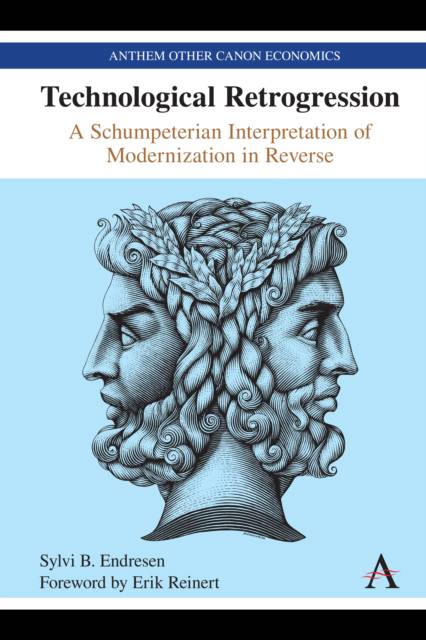
- Retrait gratuit dans votre magasin Club
- 7.000.000 titres dans notre catalogue
- Payer en toute sécurité
- Toujours un magasin près de chez vous
- Retrait gratuit dans votre magasin Club
- 7.000.0000 titres dans notre catalogue
- Payer en toute sécurité
- Toujours un magasin près de chez vous
Technological Retrogression
A Schumpeterian Interpretation of Modernization in Reverse
Sylvi B Endresen
201,45 €
+ 402 points
Description
The aim of this book is to broaden our understanding of technological change by adopting the concept of technological retrogression. With reference to concrete cases of technological retrogression a new conceptual framework is developed. The book's exposition aims at contrasting retrogressive economic dynamics of technological change to progressive dynamics as developed by Schumpeter.
Spécifications
Parties prenantes
- Auteur(s) :
- Editeur:
Contenu
- Nombre de pages :
- 252
- Langue:
- Anglais
- Collection :
Caractéristiques
- EAN:
- 9781785277139
- Date de parution :
- 08-06-21
- Format:
- Livre relié
- Format numérique:
- Genaaid
- Dimensions :
- 152 mm x 229 mm
- Poids :
- 539 g

Les avis
Nous publions uniquement les avis qui respectent les conditions requises. Consultez nos conditions pour les avis.






